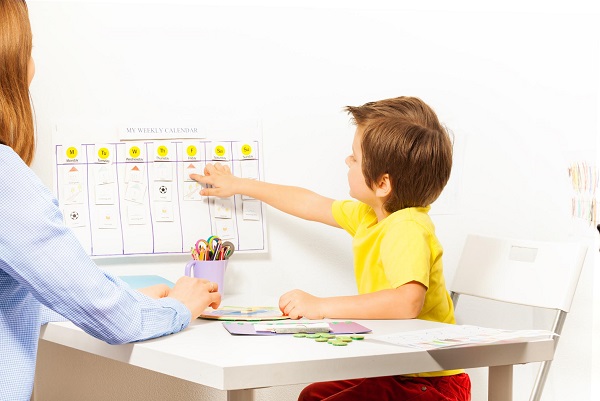
The child prodigy
That being said, if you want to get to the top, you have to work at it and for prodigy children, some things must be sacrificed. But who is sacrificing the most so a child can partake in their chosen activity? It’s usually the parents. And these sacrifices can come in the form of cash, paying for lessons, club membership, and training; and time, with parents devoting hours diligently driving too and fro so their child can be at the top of their game in their chosen activity.
Andy Murray wouldn’t have made it if it weren’t for the drive of his mother Judy, who tirelessly and diligently spent her adult life promoting her two sons’ tennis careers. And while we certainly admire people like Judy, we can’t help but wonder at the cost? How many weekends, afternoons, and evenings were spent at the tennis club pummeling serves and practicing volleys until it became muscle memory? How many family events, Sunday dinners or birthday parties were missed because training always took precedence? Is there a happy medium? And where does this happy medium exist?
Training versus practice
One thing that stands out to me is the use of the word ‘training’ when it comes to children’s sports. It is not GAA; it’s ‘training’. They don’t have ‘singing’; it’s voice training. The same with soccer, tennis, basketball, and athletics. And the training isn’t simply for self-development; it leads to matches, races, and competitions. Pressurized environments, where children are encouraged to win, not just take part. Having a healthy competitive drive will enable children to succeed in life. But what about the parent shouting at his or her child to tackle another child in a soccer, GAA, or rugby match? Is there such a thing as too far? Or is it all healthy competition?
While we know that such obsessive and ‘tunnel vision’ behaviour isn’t healthy, the opposite is perhaps more so. Obesity is a rising problem in Ireland and signing your child up for a sport outside of their weekly PE class may be the thing that keeps them healthy and balanced. It’s been shown numerous times that children who have a sport throughout school achieve better grades. That they are more confident and less likely to suffer from depression. But what happens when these pursuits fall into the ‘just keeping busy’ category? And become a way of disguising a deeper problem?
Keeping busy
Being so busy that you don’t have a moment to yourself to just stop and breathe can’t be good for children; as adults, one of the things we crave most is more time. Time out of our commute, or a shorter work day, and yes, even that our kids maybe didn’t have so many activities to get shepherded to and from. What are we doing to our children if we’re installing this ‘busy’ attitude in them from a young age? Will they thrive on it, or like us, will they always crave just a few minutes to themselves throughout adulthood?
They say ‘boredom generates genius’. A better way to put it would be to say ‘boredom generates creativity’. One step further would be to add time into that mix. It may take hours of staring at a blank canvas before an artist creates a masterpiece. Or an athlete weeks of visualising themselves winning that race, or making that kick in order to succeed at it in ‘real life’. In one study it was seen that preschool children who engaged in 75 minutes of ‘free-play’ a week developed better problem-solving skills, verbal creativity and graphic creativity than children who partook only in organised activities for the duration of the study.
So how many hours a week should kids spend doing extracurriculars?
No more than one hour a day, five days a week is recommended to keep kids healthy and happy. But all children are different and this can change from child to child. Some children thrive on spending their energy at large levels through sports and swimming lessons and get the respite and creativity they need from chess and drama club. They might need more or less than their friends to be happy and healthy, so it’s important for parents to see what best suits their own individual child. Rather than signing them up for everything just because the whole gang is signing up.
It’s recommended that children get about an hours worth of PDF a day. PDF an acronym for playtime, downtime and family time including a family dinner, some outdoor play or indoor play with parents or siblings at a board game, and some time for them to just do whatever they feel like. This last one is especially important as it needs
What’s a good alternative?
One idea to both combat and help the situation would be parent taking on an extra pursuit with their children. For example learning the guitar (who didn’t go through a phase of wanting to learn the guitar?). It incorporates some family time into the day, while also encouraging and expanding on your child’s cultural pursuits and education. There are countless YouTube videos teaching you how to do anything – you don’t even have to pay for it! It also gives parents the chance to see their children in a completely different situation and light, fostering a closer relationship and a sense of achievement. Younger children especially will always want to spend more time with mum and dad, so running with this is a great way to get the best of both worlds.
What do you think? Does your child spend every day after school out ‘training’, or practicing their music or dance? What kind of down time do they have, or are their extra curricular activities their down time?
maternity & infant
Originally posted 2017-09-04 16:07:14.








